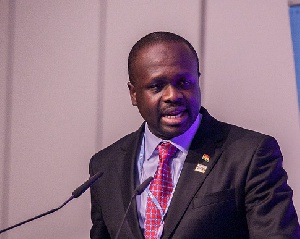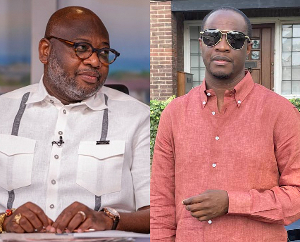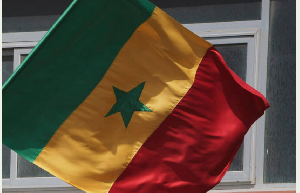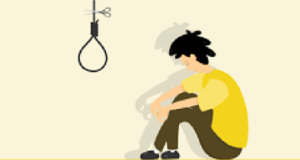Dr. Edward Omane-Boamah may not like to hear this, but for those of us believers in “Ghanaian Exceptionalism,” ranking Ghana 7th out of some 54 African countries in overall governance performance is no enviable place to be in (See “We Don’t Need Mo-Ibrahim to See Ghana is Rising – Omane-Boamah” MyJoyOnline.com / Ghanaweb.com 10/4/16).
Now, that is depressing evidence of mediocrity, coming nearly 60 years after our beloved nation’s reassertion of its sovereignty from British colonial rule. I don’t know much about the details of both the United Nations Development Program’s research, which the Mahama Communications Minister and his boss privilege over the apparently more comprehensive analyses of several other surveys reportedly released by the Mo-Ibrahim Group.
And here ought to be promptly pointed out for the benefit of those of our readers who may not be aware of the same that since the early 1990s, the Sudanese-born media mogul has been awarding the self-named Mo-Ibrahim Prize to former African heads-of-state who have distinguished themselves in the critical political art of good governance. The panel of judges that awards the Mo-Ibrahim Prize is very ably chaired by Ghana’s former United Nations Secretary-General and current Chancellor of his country’s flagship academy, the University of Ghana, Mr. Kofi Annan.
No Ghanaian politician has yet been awarded the Mo-Ibrahim Prize; and it is highly unlikely that any of the National Democratic Congress leaders would be deemed to be qualified for the Mo-Ibrahim Prize anytime soon. Maybe this is what so irritates Dr. Omane-Boamah that it has prompted him to impugn the credibility and integrity of the analyses of multiple surveys conducted by other think-tanks upon which the Mo-Ibrahim Group relied in determining its good-governance rankings this year.
Whether the rankings were largely based on quantitative analysis, as the Mahama tout would have it, or qualitative analysis is decidedly beside the point; for at the end of the day, it is the perception of the governed, or the proverbial people on Ground Zero, that matters more than all else.
And curiously, it is also interesting to note, while in opposition, the key operatives of the National Democratic Congress had been widely known to more avidly rely on qualitative survey analyses than facts and figures or quantitative analyses.
But what also struck me as all too nauseatingly predictable was the shameless attempt by the NDC operatives to take undue credit for the exponential increase in the level of literacy in the country between 2001 and 2013, a critical period that largely spans the tenure of the Kufuor-led government of the New Patriotic Party (NPP). We are also reliably informed that in 1993, when Chairman Jerry John Rawlings, the founding-father of the National Democratic Congress, morphed from a junta leader into a democratically elected president, the nation’s youth literacy rate stood at a dismal 22-percent. By 2013, barely four years after Mr. Kufuor had left the scene, the youth literacy rate stood at an impressive 80.5-percent. In all likelihood, the youth literacy rate must have peaked in the neighborhood of 90-percent at the height of the Kufuor-implemented school-feeding program.
It is highly likely that the youth literacy rate would sharply decline in the offing, in view of the considerable depreciation in the quality of public education under the Mahama regime, with the academically regressive reduction in the duration of the Senior High School System from four to three years, before it healthily rises up again, hopefully under the auspicious tenure of a more progressive Akufo-Addo-led New Patriotic Party government.
Again, ranking Ghana 7th in the fight against corruption among African governments is no enviable position. Those of us avid believers in “Ghanaian Exceptionalism” would rather have our beloved nation ranked among the top-five countries on the corruption-fighting index, and not among the top-ten countries.
But with NDC bulwarks like Chairman Jerry John Rawlings and President Mahama at the receiving end of interminable cascades of payolas, one can almost be certain that the present anti-corruption ranking of Ghana at Number 7 does not tell the entire story.
I mean, being ahead of countries like South Africa, Egypt, Tunisia and Botswana is something worth writing home about, not when Ghana is ranked ahead of patent backwoods countries like Kenya, Côte D’Ivoire, Nigeria and Senegal, their glorious endowment with literary giants like Chinua Achebe, Wole Soyinka, Leopold Sedar Senghor and Ngugi wa Thiong’O notwithstanding.
Dr. Omane-Boamah also plays it dirty and cheaply and tawdrily when he exhorts Ghanaians to “stick to socioeconomic data in areas like infant mortality, life expectancy, access to healthcare and education as a better assessment of progress,” almost as if the NDC-sponsored Darwinian health policy of Cash-and-Carry were a visionary roadmap to these quality-of-life improvement measures.
*Visit my blog at: kwameokoampaahoofe.wordpress.com Ghanaffairs
Opinions of Wednesday, 9 November 2016
Columnist: Okoampa-Ahoofe, Kwame















